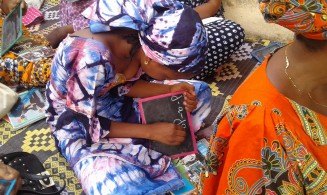

Making literacy for all a reality: the Global Alliance for Literacy meets in Mexico City
High-level representatives from 29 countries will come together on 13 and 14 November 2018 in Mexico City, Mexico, to review progress made in the field of youth and adult literacy within the framework of Sustainable Development Goal (SGD) 4 on lifelong learning.
This international policy forum, ‘Literacy policies and Sustainable Development Goal 4’, is part of the Global Alliance for Literacy within the Framework of Lifelong Learning (GAL) initiative, the aim of which is to help Member States make accelerated progress towards achieving literacy for all, with particular attention to youth and adults. The UNESCO Institute for Lifelong Learning (UIL), as GAL Secretariat, co-organized the event with the Ministry of Education of Mexico and the Center for Regional Cooperation for Adult Education in Latin America and the Caribbean (CREFAL).
Literacy plays a key role in improving people’s lives. It empowers youth and adults and allows them to become active citizens and to make informed decisions. Adults with enhanced literacy skills have a better chance of earning higher incomes and finding gainful employment. Today, an estimated 750 million adults, two-thirds of them women, still lack basic reading and writing skills.
What does it take to make youth and adult literacy programmes effective? How can we ensure such programmes successfully improve literacy skills as well as other dimensions of human development? These are just some of the questions that participants at the event will address.
Lessons learned and recommendations resulting from this forum will be consolidated in a report and shared at the upcoming 2018 Global Education Meeting in Brussels, Belgium, on 3 December 2018.





